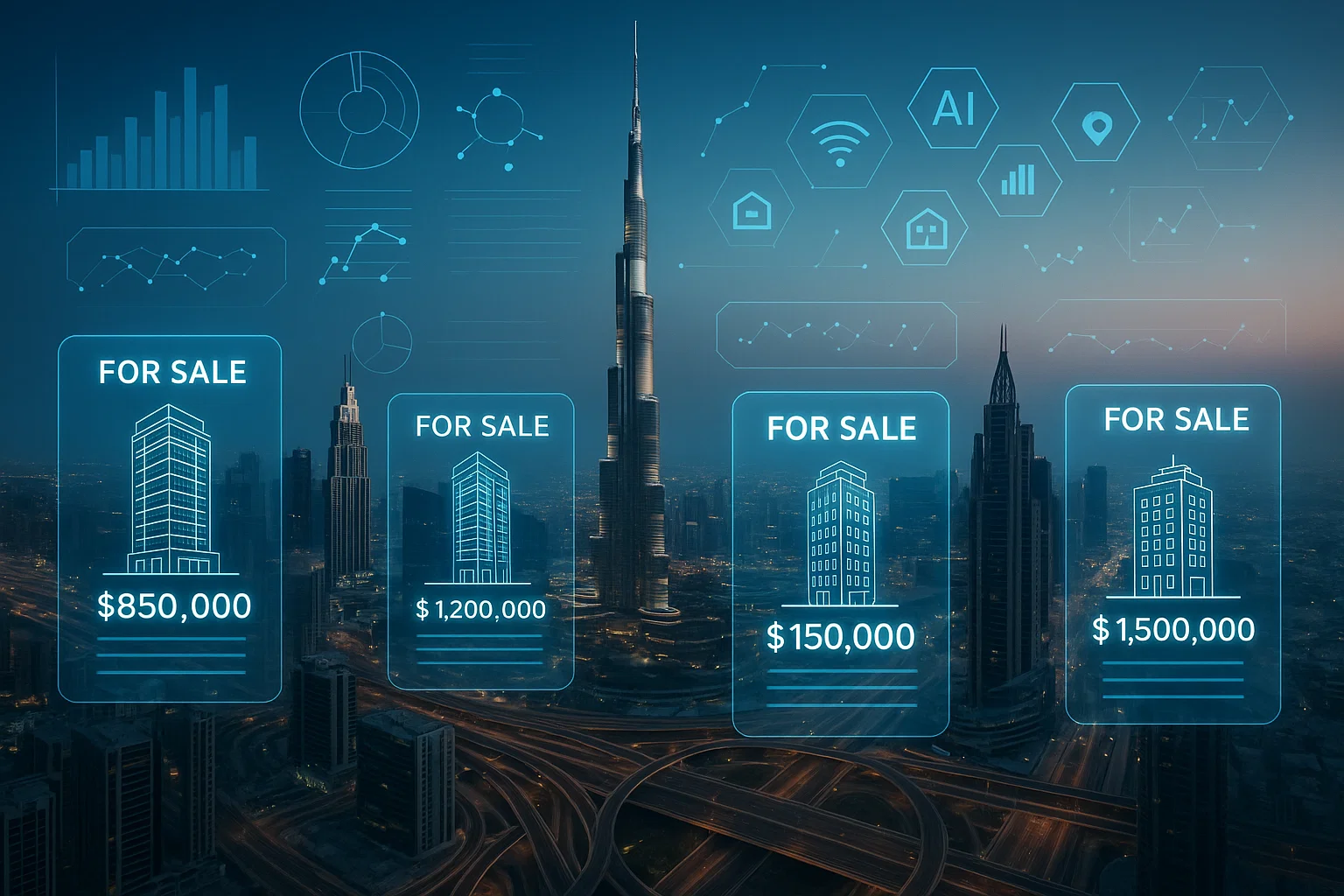How Technology Is Changing Real Estate Brokerage in the UAE

1. The Brokerage Landscape Before Technology
2. Key Tech Drivers Reshaping Brokerage
AI & Big Data
Virtual Reality (VR), Augmented Reality (AR) & Virtual Tours
Internet of Things (IoT) & Smart Buildings
PropTech Platforms & Digital Marketplaces
3. What It Means for Brokerage Firms
Redefining the Broker’s Role
Faster Lead-to-Close Cycles
Increased Transparency & Trust
Enhanced Client Experience
Data-Driven Decision-Making
4. Opportunities & Challenges
Opportunities
Challenges
5. How Clients Benefit from the Tech-Enabled Brokerage Model
6. What to Look For in a Brokerage Partner
7. The Future: Where Brokerage and Technology Meet Next
Conclusion
How Technology Is Changing Real Estate Brokerage in the UAE In the fast-moving world of property, the game is changing. Today, real estate technology in UAE is transforming how brokers connect with clients, how properties are marketed, and how transactions are executed. From AI-powered valuations to virtual tours and blockchain contracts, the brokerage business in the UAE is entering its digital era. In this blog
we’ll explore how technology is reshaping every stage of the real-estate brokerage lifecycle in the UAE, what that means for brokers and clients alike, and how you can stay ahead in this new environment. 1. The Brokerage Landscape Before Technology To understand the shift, we first recall how traditional real-estate brokerage operated: lots of paperwork, in-person viewings, physical listings, and manual negotiations. Brokers were the
connectors: they listed a property, took clients around, handled offers, maybe recommended legal and finance partners, and tried to close deals. In contrast, today’s market is increasingly digital. The introduction of real estate technology in UAE has changed the way listings are presented, how buyers research, how documentation is processed and how property management is carried out. Where brokers once relied on personal networks and
offline touches, success now demands digital fluency, tech-enabled tools and data insight. 2. Key Tech Drivers Reshaping Brokerage AI & Big Data Artificial intelligence (AI) is playing a major role. In the UAE, AI models analyse vast amounts of data: historical property sales, rental yields, demographic and infrastructure trends. These tools now assist brokers and investors to identify hotspots, forecast pricing, and tailor recommendations rather
than relying on intuition alone. Reports show this has improved accuracy of valuations and shortened deal-cycles. Blockchain & Smart Contracts Another major change is in how transactions are executed. With blockchain and smart-contracts integrated into registries and broker platforms, the process is more transparent, secure and efficient. In the UAE the regulatory bodies are already implementing blockchain in real-estate transfers, which reduces fraud risk and
speeds up closings. Virtual Reality (VR), Augmented Reality (AR) & Virtual Tours Remote viewing is no longer a nice-to-have—it’s a must. With many investors coming from abroad, being able to take virtual tours of properties from their home country has become central to brokerage services. VR/AR tools allow clients in London or Mumbai to walk through apartments in Dubai from their laptop. This dramatically widens
lead-pools and shortens time-to-decision. Internet of Things (IoT) & Smart Buildings For properties with a tech edge—smart homes and smart commercial buildings—the end-user experience is elevated. Smart systems for lighting, climate, security and energy are not merely lifestyle add-ons; they’re selling points and increasingly expected features. Brokers who can showcase smart-building benefits are seeing stronger demand and higher valuations. PropTech Platforms & Digital Marketplaces The
brokerage role itself is being supplemented by platforms that automate listing, lead-generation, matching, and even secondary market analysis. Brokers who adopt these platforms can leverage real-time data to advise clients more effectively, personalise offers, and close deals faster. The UAE’s proptech sector is predicted to triple in value, a sign of how central technology is becoming. 3. What It Means for Brokerage Firms Redefining the
Broker’s Role With real estate technology in UAE advancing, brokers are shifting from transaction-facilitators to tech-enabled advisors. Instead of just showing properties, brokers now must interpret data, guide clients through digital platforms, advise on smart-building features, and manage virtual client-journeys. Faster Lead-to-Close Cycles Technology accelerates virtually every stage: listings go live instantly, virtual tours enable immediate interest, digital contracts allow instant signing, and blockchain title
transfers reduce registration time. This means brokerage firms that embrace tech can shorten deal cycles considerably. Increased Transparency & Trust When buyers, especially from overseas, can access verified property data, transparent online listings, real-time updates and a smooth digital process, their confidence rises. For brokers this means fewer abandoned leads, less scepticism and stronger brand‐credibility. The use of blockchain and data analytics reinforces that. Enhanced
Client Experience Technology allows customised recommendations, mobile apps for property listings, 24/7 chatbots for queries, virtual walkthroughs, and tailored dashboards. Brokers offering such tech-rich experiences differentiate themselves and attract more tech-savvy clients. Data-Driven Decision-Making Brokers now have access to dashboards that show neighbourhood trends, building occupancy rates, rental yields, and predictive analytics. Using these tools, they can advise clients strategically. This is a major shift
from relying solely on local knowledge or manual comparables. 4. Opportunities & Challenges Opportunities Global Reach : Tech allows brokers to market properties to international buyers easily. New Asset Types : Fractional ownership, tokenised assets, and smart buildings open up new brokerage services. Value-Adds : Being able to showcase smart-home features, sustainability credentials, tech integrations becomes a selling point. Efficiency Gains : Less manual paperwork,
Key Topics
- How Real Estate Technology in UAE Is Transforming Property